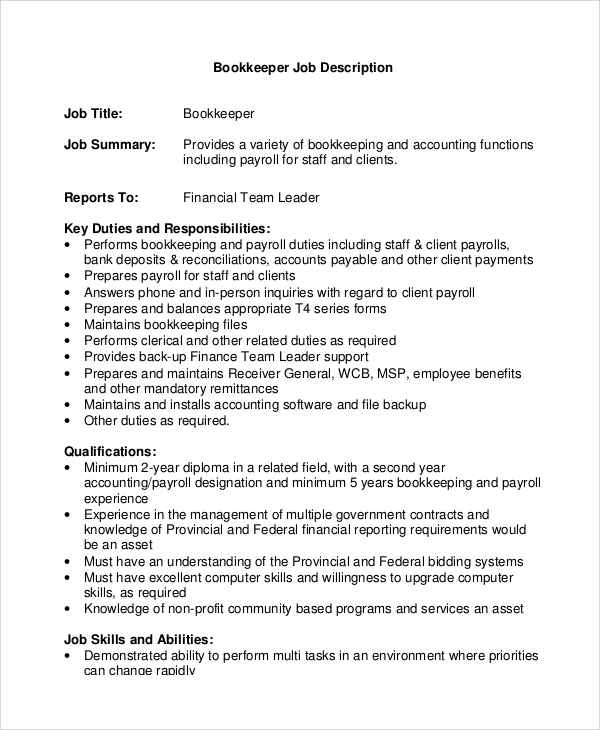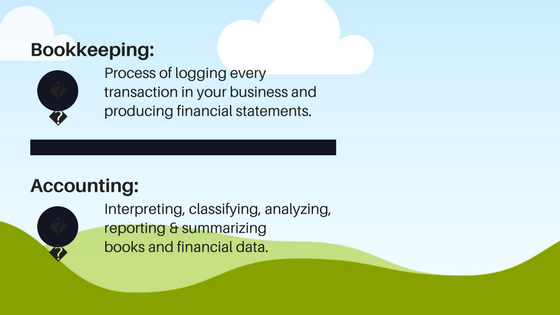

Roads, books, tools, telephones, the Internet, the legal system, property rights, double entry bookkeeping, dams, energy plants and distribution systems are examples elements of the infrastructure which facilitates individual effort.Bookkeeping is the process of recording financial transactions in a Journal in chronological order.Next, we will discuss a short history of accounting and the invention of double-entry bookkeeping, a technique that is of great assistance to accountants and bookkeepers in assuring the accuracy of accounting records and the reports that are prepared from them.If debits do not equal credits then the accountant or bookkeeper must determine why.
#Bookkeeping definition trial
The trial balance is a part of the double-entry bookkeeping system and uses the classic 'T' account format for presenting values.The bookkeeper/accountant used journals to record business transactions.The trial balance is usually prepared by a bookkeeper or accountant.Debits and credits serve as the two balancing aspects of every financial transaction in double-entry bookkeeping.Debits and credits are at the heart of the double-entry bookkeeping system that has been the foundation stone on which the financial world's accounting system has been built for well over 500 years.Credit and debit are the two fundamental aspects of every financial transaction in the double-entry bookkeeping system.

Fees for services are recorded separately from sales of merchandise, but the bookkeeping transactions for recording sales of services are similar to those for recording sales of tangible goods.In bookkeeping, accounting, and finance, net sales are operating revenues earned by a company for selling its products or rendering its services.In double-entry bookkeeping, a sale of merchandise is recorded in the general journal as a debit to cash or accounts receivable and a credit to the sales account.There are two different approaches to the double entry system of bookkeeping.A double-entry bookkeeping system is a set of rules for recording financial information in a financial accounting system in which every transaction or event changes at least two different nominal ledger accounts.


#Bookkeeping definition full
The earliest extant evidence of full double-entry bookkeeping is the Farolfi ledger of 1299-1300.One important breakthrough took place around that time: the introduction of double-entry bookkeeping, which is defined as any bookkeeping system in which there was a debit and credit entry for each transaction, or for which the majority of transactions were intended to be of this form.The bookkeeper brings the books to the trial balance stage.There are some common methods of bookkeeping such as the single-entry bookkeeping system and the double-entry bookkeeping system.Bookkeeping is usually performed by a bookkeeper.Bookkeeping is the recording of financial transactions.In accounting, the two bookkeeping methods are the single-entry and double-entry bookkeeping systems.Examples of bookkeeping in the following topics:


 0 kommentar(er)
0 kommentar(er)
